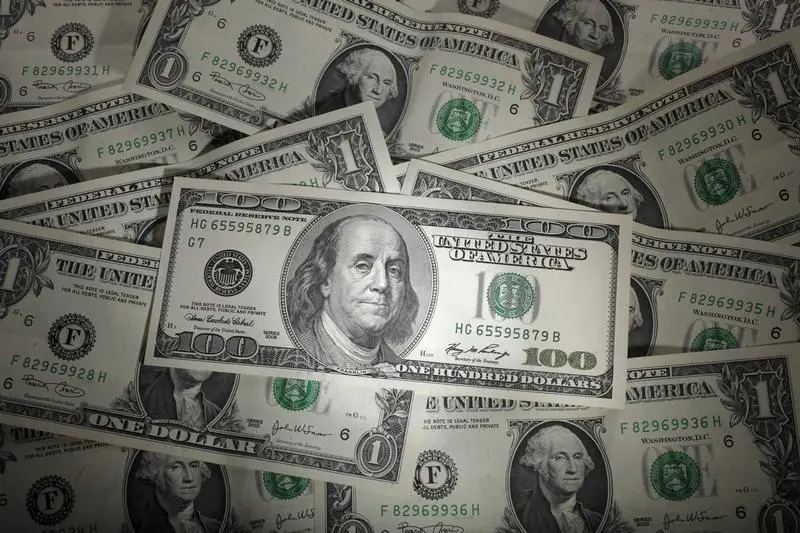PHOTO
The dollar ticked higher on Monday as traders looked ahead to policy decisions by the Federal Reserve and Bank of Japan on Wednesday for further direction.
The yen held steady, meanwhile, following the Japanese currency's best weekly rally since late April on the back of shifting interest rate expectations and a stock-market sell-off.
The dollar index, which measures the currency against the yen and five other major peers, rose 0.22% to 104.59. The euro slipped 0.35% to $1.08175 while the pound was down 0.31% to $1.2827.
The dollar was last flat at 153.80 yen, reversing an earlier decline of as much as 0.49% to the cusp of 153 at one point.
Markets have been focused on the surge in the yen over the last week, with rising speculation of a BOJ interest rate hike this week helping buoy the currency.
The U.S. Federal Open Market Committee (FOMC) is widely expected to leave rates unchanged this week, but cut them by a quarter point at the following meeting in September.
The Fed decision poses a risk to the dollar/yen pair, said Kristina Clifton, senior economist and chief currency strategist at Commonwealth Bank of Australia.
"Any hints of loosening by the FOMC could pull USD/JPY down significantly, but a hawkish FOMC will probably have little impact," she added.
Data released on Friday showed investors have sharply cut back on their bets against the yen, which was trading at a 38-year low at the start of the month.
"Sentiment remains fragile," said Shinichiro Kadota, a currency and rates strategist at Barclays in Tokyo.
Ultimately, "U.S. equities are still the key," Kadota added, referencing the demand for safe-haven currencies like the yen seen during last week's stock market rout. "Market moves have been led by U.S. equities, and we need to see if things stabilize there."
The U.S. earnings calendar this week is populated with heavyweights including Amazon, Apple, Meta and Microsoft.
Investors were also wary of further geopolitical volatility, with Israel weighing a response to a deadly rocket strike in the Israeli-occupied Golan Heights which Israel and the United States blamed on Lebanese armed group Hezbollah.
Currency traders also need to contend with not just the BOJ and Fed on Wednesday, but the Bank of England a day later.
Sterling fell as investors looked towards the BoE meeting, where the market sees the odds of a first rate cut as a coin toss. British bond yields fell on Monday, pulling the pound lower.
Elsewhere, the Australian dollar was slightly lower at $0.6542, attempting to recover from Friday's low of $0.65105, a level not seen since the start of May.
Leading cryptocurrency bitcoin advanced 3% to $69,540, receiving some support from positive comments from Republican presidential candidate Donald Trump, who told a bitcoin conference on Saturday that the U.S. must dominate the sector or China would.
(Reporting by Kevin Buckland in Tokyo and Harry Robertson in London; Editing by Miral Fahmy, Ros Russell and Toby Chopra)





















